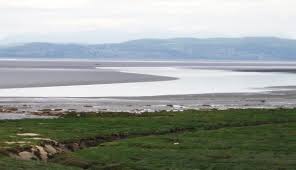Discovering the Wonders of Morecambe Bay

Introduction
Morecambe Bay, located on the north-west coast of England, is a region of stunning natural beauty and ecological significance. Stretching over 120 square miles, this area is not only a haven for diverse wildlife but also a popular destination for tourists seeking outdoor adventures and cultural experiences. Its unique geography and biodiversity have garnered the Bay recognition as a Special Area of Conservation, underscoring its importance in contributing to environmental sustainability.
The Natural Beauty of Morecambe Bay
Morecambe Bay is renowned for its picturesque landscapes, sandy beaches, and tidal estuaries. The area is home to a variety of wildlife, including numerous bird species such as oystercatchers, curlews, and avocets, making it a prime spot for birdwatching enthusiasts. The tidal nature of the Bay creates a dynamic environment, with vast mudflats that are revealed at low tide, attracting a plethora of marine life.
Cultural and Historical Significance
In addition to its natural allure, Morecambe Bay is steeped in history and culture. The region has long been inhabited, with evidence of prehistoric settlements discovered along its shores. Local towns such as Morecambe and Grange-over-Sands offer visitors a glimpse into the area’s rich heritage, featuring local architecture, museums, and art galleries. The Bay also hosts various events throughout the year, including the Morecambe Bay Food Festival, celebrating local produce and culinary talent.
Efforts in Conservation and Future Outlook
As awareness of climate change and environmental issues grows, so does the commitment to preserving Morecambe Bay’s unique ecosystem. Local organisations and conservation groups are actively working towards maintaining the delicate balance between tourism and conservation. Initiatives to protect habitats and promote sustainable practices are increasingly being implemented, ensuring that both the environment and local communities benefit from the Bay’s natural resources.
Conclusion
Morecambe Bay is not just a geographical feature; it is a vibrant ecosystem rich in history, culture, and wildlife. As the region continues to attract visitors and efforts to preserve its beauty intensify, it stands as a testament to the importance of environmental conservation. For anybody looking to explore a unique and beautiful part of the United Kingdom, Morecambe Bay should undoubtedly be on the list.









